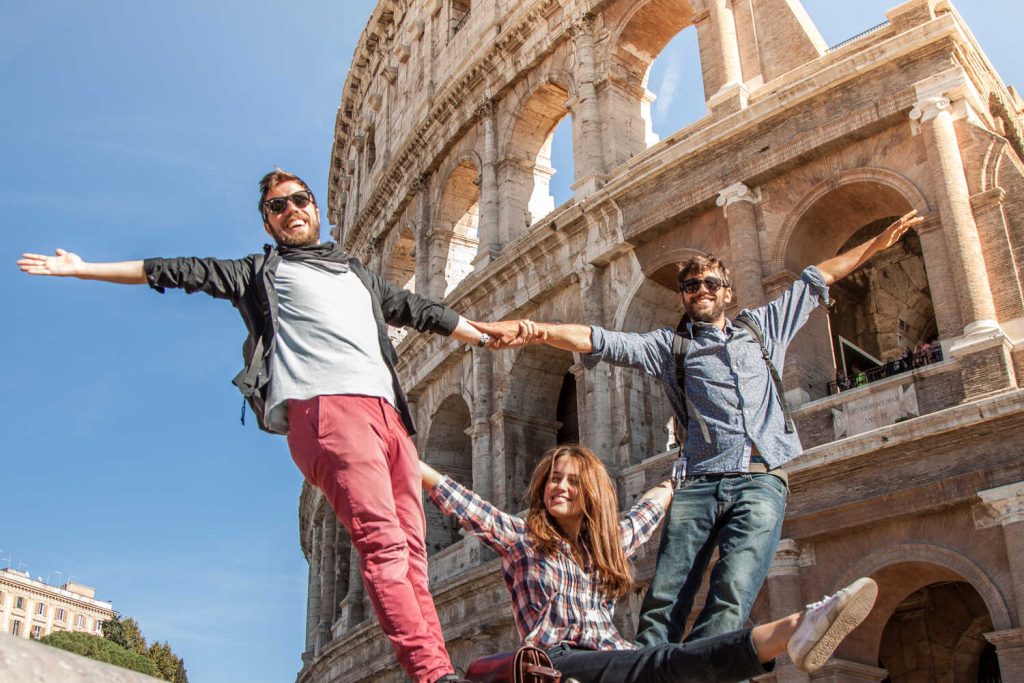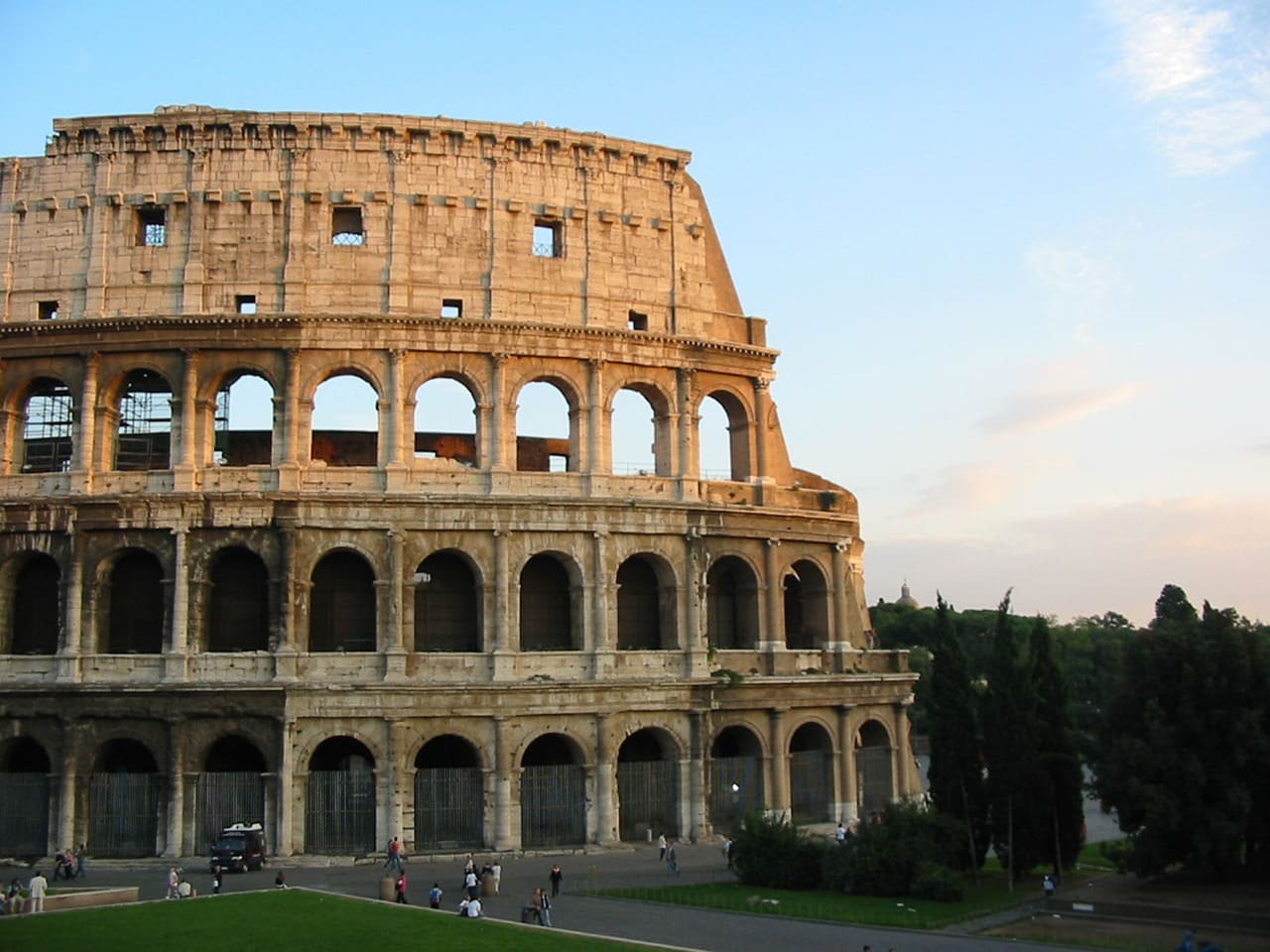
Quando vengono messi in vendita i biglietti per il Colosseo?
Visitare il Colosseo a Roma è un sogno per molti. Ogni anno accoglie oltre 7 milioni di visitatori. È fondamentale
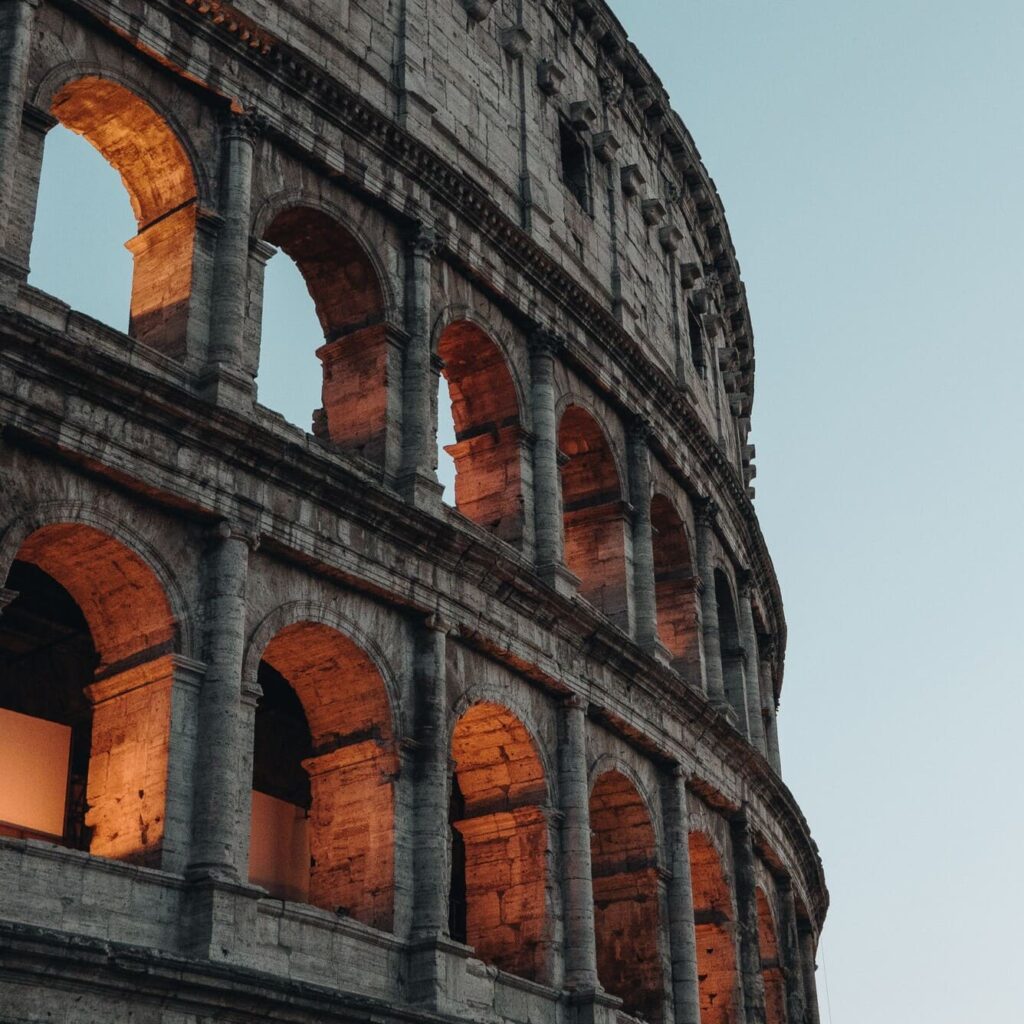
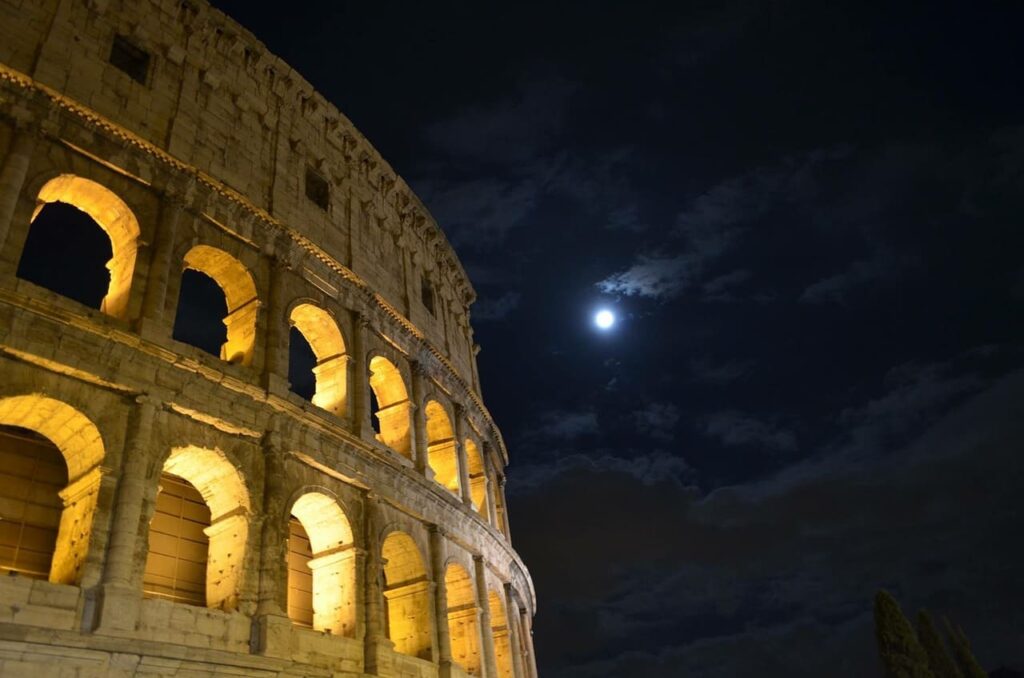
La visita serale al Colosseo rivela un lato completamente nuovo del monumento simbolo di Roma. Al chiaro di luna, le arcate brillano e ti trasportano all’epoca degli imperatori e dei gladiatori.
Con meno folla rispetto al giorno, i tour notturni offrono un modo più rilassato per immergersi nella ricca storia del sito. Per vivere un’esperienza romana serena, sia che tu ami la storia, la fotografia o le avventure memorabili, una visita notturna al Colosseo è un must.
Colosseo illuminato
Accesso esclusivo alle aree riservate
Niente folla di giorno
Guida turistica esperta
Prova l’Arena Floor del Colosseo dopo la chiusura, godendo di un accesso VIP in un ambiente privo di folla.
Assapora Roma al chiaro di luna con una pizza, visita il Colosseo, il Pantheon e la Fontana di Trevi e termina a San Pietro con un gelato.
Partecipa a un tour del Colosseo in un’ora d’oro, salta le code e vai direttamente all’interno di notte.
Esplora Roma e il Colosseo di notte con una guida locale: un modo economico e divertente per vedere la città dopo il tramonto.
Tour consigliato
Esplora i tunnel poco illuminati del Colosseo anche dopo che la folla se n’è andata, scoprendo storie agghiaccianti di gladiatori e bestie selvagge prima di entrare nell’arena al chiaro di luna, un’esperienza che non dimenticherai mai.
Durata: ~ 1 ora e 15 minuti
Guida turistica dal vivo: Inglese
Biglietto per il Colosseo: Incluso
Accesso esclusivo alla metropolitana
Accesso esclusivo al piano dell'Arena
Cuffie per ascoltare chiaramente la tua guida
Dimensione del gruppo: max. 25 persone
Ritrovati davanti al Colosseo in prima serata, ricevi il tuo biglietto speciale per l'after-hour e ricevi una breve introduzione.
Salta le file normali e dirigiti direttamente all'esclusiva area sotterranea. Guarda dove venivano tenuti i gladiatori e gli animali prima di entrare nell'arena.
Sali su una sezione dell'antico pavimento per ammirare l'interno illuminato del Colosseo. Goditi una panoramica guidata sulla sua storia e sul suo significato.
Concludi la tua visita con le ultime informazioni della tua guida prima di uscire dal Colosseo nella notte romana.
Ritrovati davanti al Colosseo in prima serata, ricevi il tuo biglietto speciale per l'after-hour e ricevi una breve introduzione.
Salta le file normali e dirigiti direttamente all'esclusiva area sotterranea. Guarda dove venivano tenuti i gladiatori e gli animali prima di entrare nell'arena.
Sali su una sezione dell'antico pavimento per ammirare l'interno illuminato del Colosseo. Goditi una panoramica guidata sulla sua storia e sul suo significato.
Concludi la tua visita con le ultime informazioni della tua guida prima di uscire dal Colosseo nella notte romana.
Tour consigliato
Vivi l’Antica Roma dopo il tramonto: ammira il Foro illuminato dalla luna, poi entra nell’Arena del Colosseo, dove un tempo si battevano i gladiatori.
Durata: ~ 2 ore
Guida turistica dal vivo: Inglese
Biglietto per il Colosseo: Incluso
Accesso esclusivo al piano dell'Arena
Ingresso VIP After-Hours
Vedi anche il Foro Romano
Piccolo gruppo: max. 10 persone
Inizia dalla Colonna Traiana, vicino a Piazza Venezia, poi cammina lungo Via dei Fori Imperiali per ammirare il Foro Romano di notte. Immagina il vivace mercato dell'antica Roma, dove un tempo si riunivano i politici e passavano i cortei trionfali.
Goditi uno scorcio panoramico del Foro Romano dall'esterno. Sotto il cielo della sera, percepisci la grandezza degli antichi templi e degli spazi pubblici, lontano dalla folla del giorno.
Entra nel Colosseo dopo l'orario di chiusura per un'esperienza più tranquilla e fresca. Sali sul pavimento ristretto dell'Arena, dove un tempo combattevano i gladiatori. Ammira i graffiti medievali appena scoperti e scatta foto mozzafiato dell'anfiteatro illuminato dal cielo notturno.
Inizia dalla Colonna Traiana, vicino a Piazza Venezia, poi cammina lungo Via dei Fori Imperiali per ammirare il Foro Romano di notte. Immagina il vivace mercato dell'antica Roma, dove un tempo si riunivano i politici e passavano i cortei trionfali.
Goditi uno scorcio panoramico del Foro Romano dall'esterno. Sotto il cielo della sera, percepisci la grandezza degli antichi templi e degli spazi pubblici, lontano dalla folla del giorno.
Entra nel Colosseo dopo l'orario di chiusura per un'esperienza più tranquilla e fresca. Sali sul pavimento ristretto dell'Arena, dove un tempo combattevano i gladiatori. Ammira i graffiti medievali appena scoperti e scatta foto mozzafiato dell'anfiteatro illuminato dal cielo notturno.
Tour consigliato
Non fermarti solo al Colosseo, ma ammira i monumenti notturni più mozzafiato di Roma e concediti un delizioso pasto a base di pizza autentica e gelato appena fatto.
Durata: ~4 ore
Guida turistica dal vivo: Inglese
Ritiro e consegna: Incluso
Accessibile alle sedie a rotelle: Sì
Cibo e bevande: Cena a base di pizza e gelato
Dimensione del gruppo: Piccolo gruppo
Tour consigliato
Esplora il Colosseo, che si illumina all’ora d’oro, con un tour guidato “salta la fila”. Scopri secoli di storia, dalle battaglie dei gladiatori all’impressionante architettura.
Durata: ~ 1 ora e 30 minuti
Guida turistica dal vivo: Inglese, tedesco, italiano e altro ancora
Biglietto per il Colosseo: Incluso
Salta la fila per i biglietti
Gruppo privato: disponibile
Goditi un ambiente più tranquillo perché la folla diurna si disperde, rendendo più facile l'esplorazione e l'apprezzamento di ogni dettaglio.
Ammira la morbida illuminazione degli archi: uno sfondo perfetto per foto mozzafiato.
Durante i mesi caldi, le visite sono più fresche e prive di calore a mezzogiorno, per rendere l'esplorazione dopo il tramonto ancora più memorabile.
Ascolta storie intriganti su imperatori, gladiatori e storia romana, raccontate da esperti padroni di casa locali.
Molti biglietti per il tour notturno del Colosseo includono l'accesso prioritario, così potrai entrare direttamente senza fare lunghe code.
Aziende come Get Your Guide offrono una serie di pacchetti, dall'ingresso base al tour VIP Colosseo di notte con accesso ai sotterranei e all'arena.
Porta con te un documento d’identità valido: Porta con te un passaporto o un documento d’identità rilasciato dal governo; alcuni tour richiedono la verifica dell’età o la prova dell’acquisto del biglietto.
Arriva in anticipo: Cerca di arrivare al punto d’incontro almeno 15 minuti prima dell’orario di inizio previsto per evitare la fretta dell’ultimo minuto.
Accesso VIP senza coda: Alcuni dei tour del Colosseo prevedono l’ingresso prioritario, che ti permette di evitare le lunghe code e di entrare direttamente all’interno.
Vestiti in modo comodo: Indossa scarpe robuste adatte a camminare su superfici irregolari e prendi in considerazione l’idea di portare con te una giacca leggera perché la sera può fare più fresco.
Solo borse piccole: Uno zaino o una borsa compatta con acqua e snack va bene, ma non sono ammessi bagagli grandi o oggetti ingombranti.
Chiedi pure: La tua guida parlante inglese è a disposizione per aiutarti. Fai domande sulla storia, l’architettura o i consigli su Roma.

Visitare il Colosseo a Roma è un sogno per molti. Ogni anno accoglie oltre 7 milioni di visitatori. È fondamentale
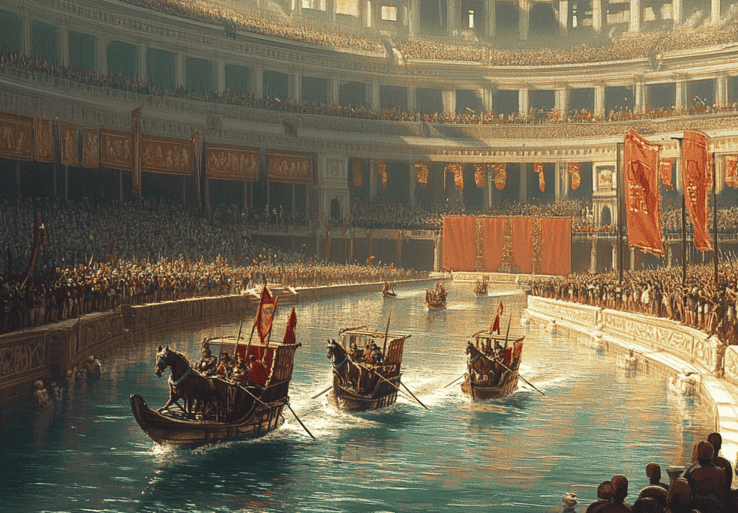
L’idea che i Romani utilizzassero il Colosseo per le battaglie navali, o naumachie, è affascinante. Questo enorme anfiteatro è noto
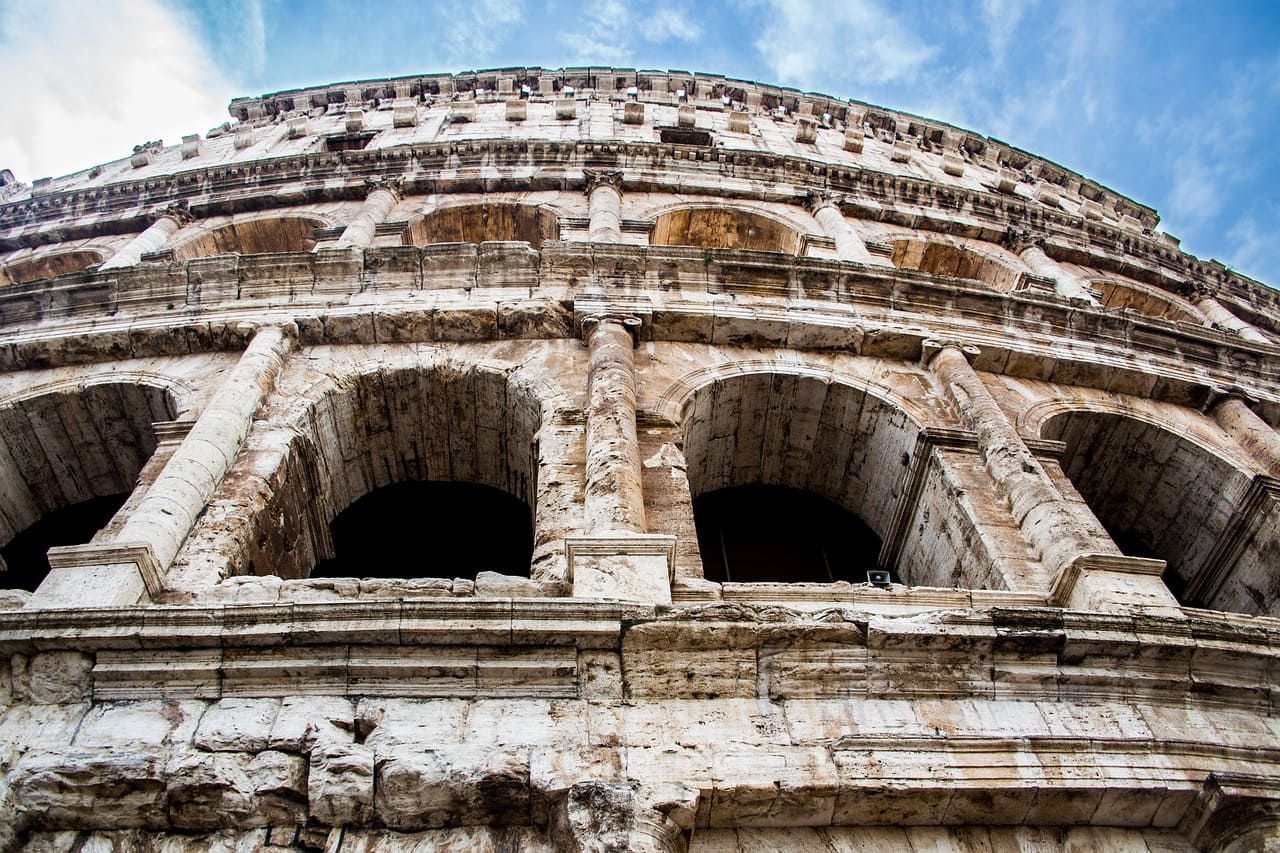
Il Colosseo è un monumento all’antica Roma e mostra le meraviglie dell’ingegneria romana. Costruito nell’80 d.C., un tempo era il
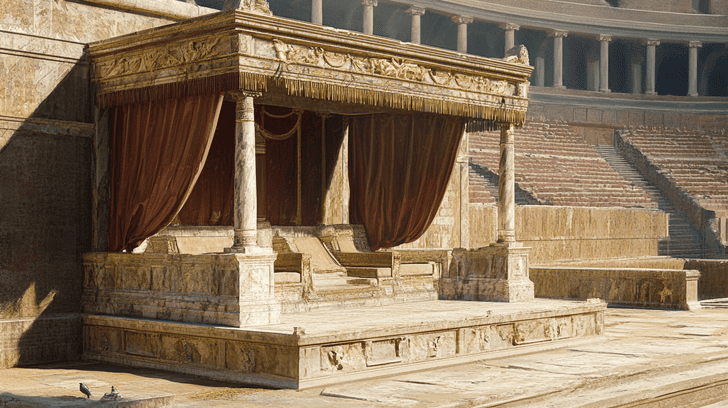
Il Colosseo, noto anche come Anfiteatro Flavio, è uno dei simboli più iconici dell’antica Roma. Ma cos’era il palco dell’imperatore
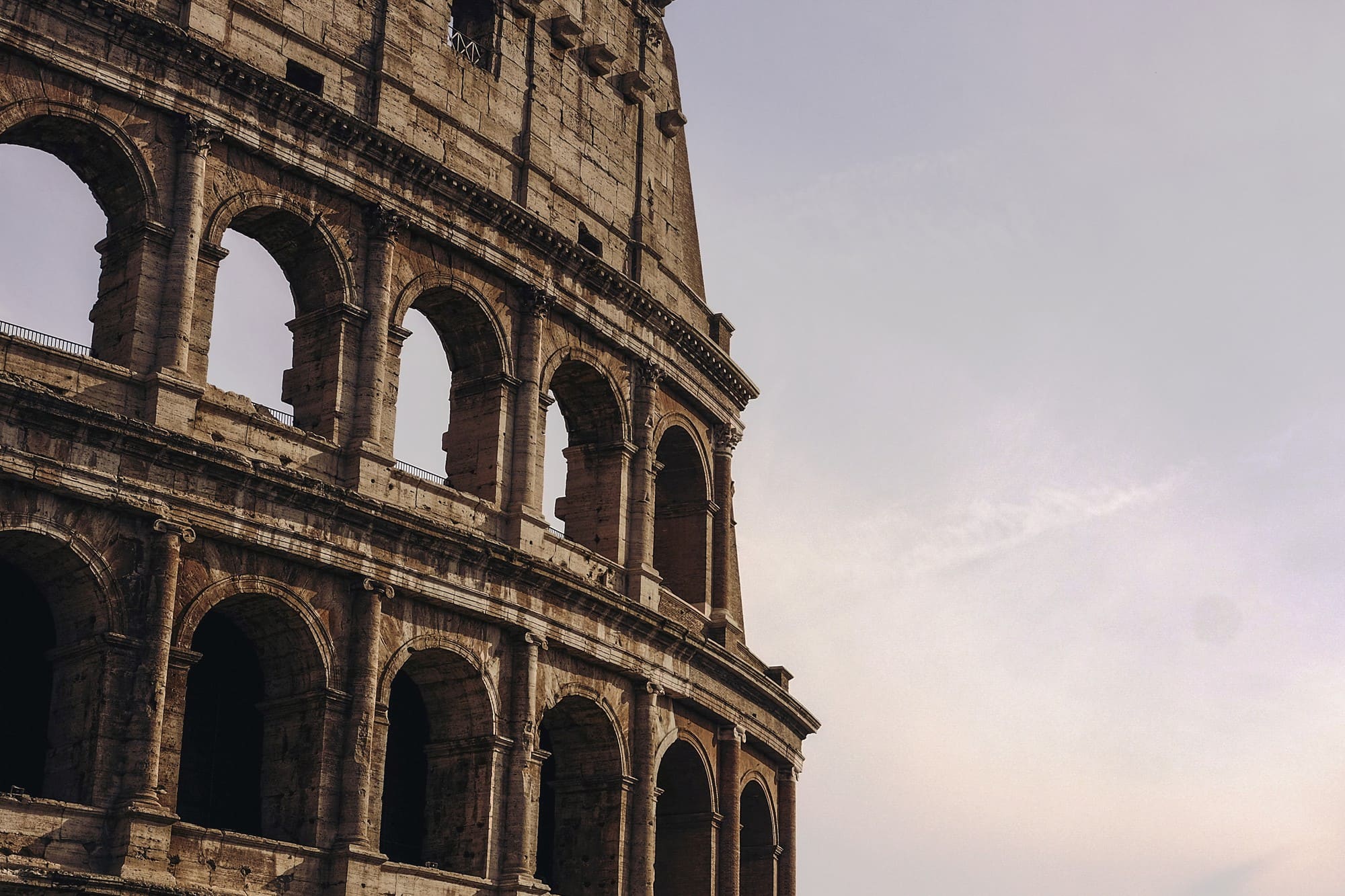
Il Colosseo, noto anche come Anfiteatro Flavio, è una delle più grandi meraviglie architettoniche e ingegneristiche dell’antica Roma. Rinomato per
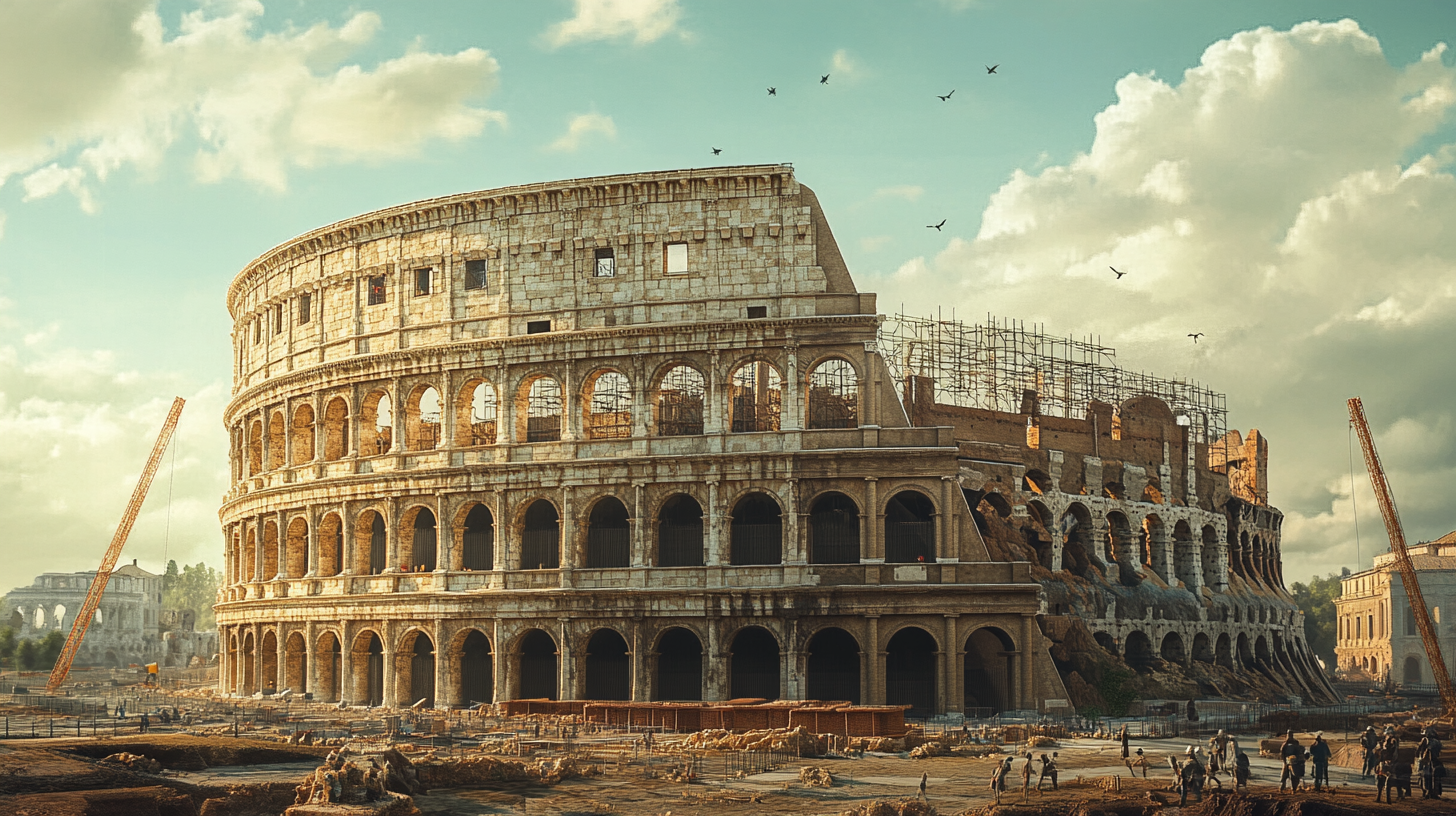
Il Colosseo, noto anche come Anfiteatro Flavio, è uno dei luoghi più iconici dell’antica Roma. Conosciuto per la sua
Assolutamente! Una visita notturna al Colosseo è un’esperienza indimenticabile. Potrai passeggiare per l’antico anfiteatro con meno persone in giro, sotto il magico bagliore delle luci che conferiscono alle rovine un’atmosfera misteriosa, totalmente diversa dal giorno.
Il nostro esclusivo tour notturno ti permette di accedere a luoghi speciali come i tunnel sotterranei, solitamente off-limits durante il giorno. Inoltre, l’aria più fresca della sera ti permette di passeggiare in tutta comodità. Basta indossare scarpe comode!
Le nostre guide esperte garantiranno un’esperienza tranquilla e personale in un ambiente privato o in un piccolo gruppo.
Purtroppo no. Le visite notturne avvengono rigorosamente attraverso tour guidati per garantire la sicurezza di tutti e proteggere l’antica struttura.
Questi tour sono ricchi di approfondimenti da parte di esperti, che raccontano storie e fatti del Colosseo che non potresti scoprire altrove. Prenotare un tour notturno significa anche evitare la folla del giorno, rendendo la tua esperienza più serena e personale.
L’orario di chiusura varia durante l’anno. In estate, il Colosseo può rimanere aperto fino a mezzanotte per le visite notturne.
L’ingresso regolare di solito termina prima del tramonto, quindi assicurati di controllare gli orari più recenti quando pianifichi il tuo viaggio. Controlla gli orari di apertura del Colosseo qui e prenota uno dei nostri tour del Colosseo per sfruttare al meglio il tuo tempo a Roma.
Sì, ed è uno spettacolo mozzafiato! Di notte, una speciale illuminazione mette in risalto le antiche mura e gli archi, facendo risaltare l’intera struttura contro il cielo scuro.
Questo crea fantastiche opportunità fotografiche e aggiunge un tocco drammatico alla tua visita. Che tu stia passeggiando o partecipando a un tour notturno guidato, il Colosseo illuminato è qualcosa di imperdibile.
Visitare il Colosseo di notte offre diversi vantaggi unici. Ecco perché un tour notturno è un must:
Sebbene visitare l’arena durante il giorno sia un’esperienza da non perdere, il tour serale del Colosseo rende tutto molto più personale. Inoltre, avrai accesso esclusivo ai sotterranei e all’arena.
Vivi la notte del Colosseo come mai prima d’ora con i nostri tour notturni di Roma! Unisciti alla nostra guida esperta per vivere un’esperienza divertente nella storia.
Salta le code, sconfiggi la folla e preparati a vivere una serata indimenticabile nei luoghi più iconici di Roma.
